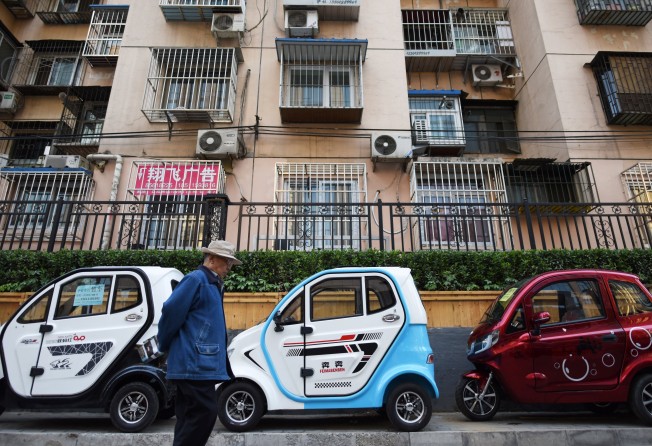Tough road ahead in switch to electric cars
If the country is to become a hi-tech powerhouse, the conversion of vehicles powered by fossil fuels to clean energy is a must despite the huge challenges it presents

If the writing was not already on the wall for vehicles driven by fossil fuels, it was writ large when top mainland planning agency the National Development and Reform Commission said it would not approve new projects for cars using them. This has now been followed by news that China is working on a timetable to stop production and sale of such cars in the world’s biggest vehicle market. This follows in the footsteps of some European countries and the lead of big carmakers in stepping up development of electric cars and plug-in hybrids. So there is greater certainty about the road ahead, despite the demonstration of faith in fossil fuels by US President Donald Trump and his scepticism of climate change that led him to pull out of the Paris Agreement.
Vice-minister for industry Xin Guobin told a forum in Tianjin that China is considering following countries such as Norway and the Netherlands, which aim to ban sales of cars driven by fossil fuels by 2025, and France and Britain, which plan to ban them by 2040 to reduce air pollution and become carbon neutral by 2050.
The Ministry of Industry and Information Technology is developing a timetable, and to some extent it is working in uncharted waters. The scale of conversion from fossil fuels to electric in the mainland will dwarf anything so far contemplated anywhere in the world. As the market for cars not driven by fossil fuels remains tiny and confined to a handful of industrialised countries, planners have to get their heads around the logistics of a mass switch to electric without the benefit of relevant experience.
If the change is to go smoothly, it will involve the rolling out of adequate charging points, more generating capacity and swift adaptation to breakthrough developments in battery technology. Even if China fixes a timetable now, Xin says it faces an uphill battle to meet its commitment to cutting carbon emissions per unit of gross domestic product by 60 to 65 per cent by 2030, and making non-fossil fuels 20 per cent of the nation’s primary energy consumption.
Nonetheless, clean energy vehicles and batteries are pivotal to Beijing’s plan to turn the country into a hi-tech powerhouse in the next few decades.